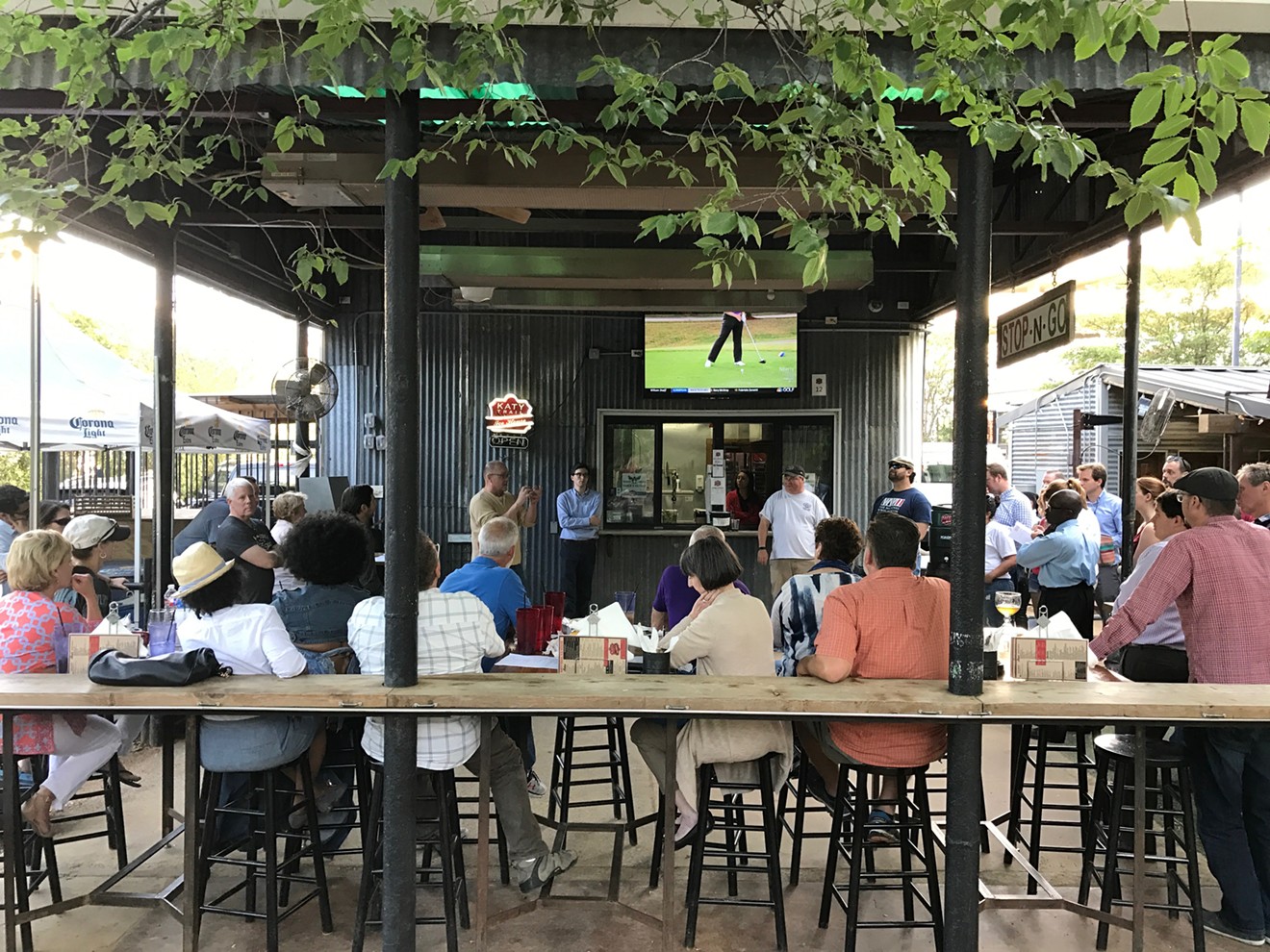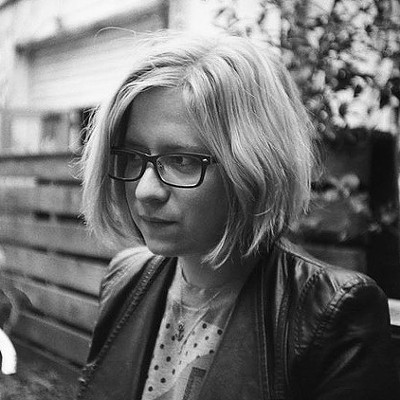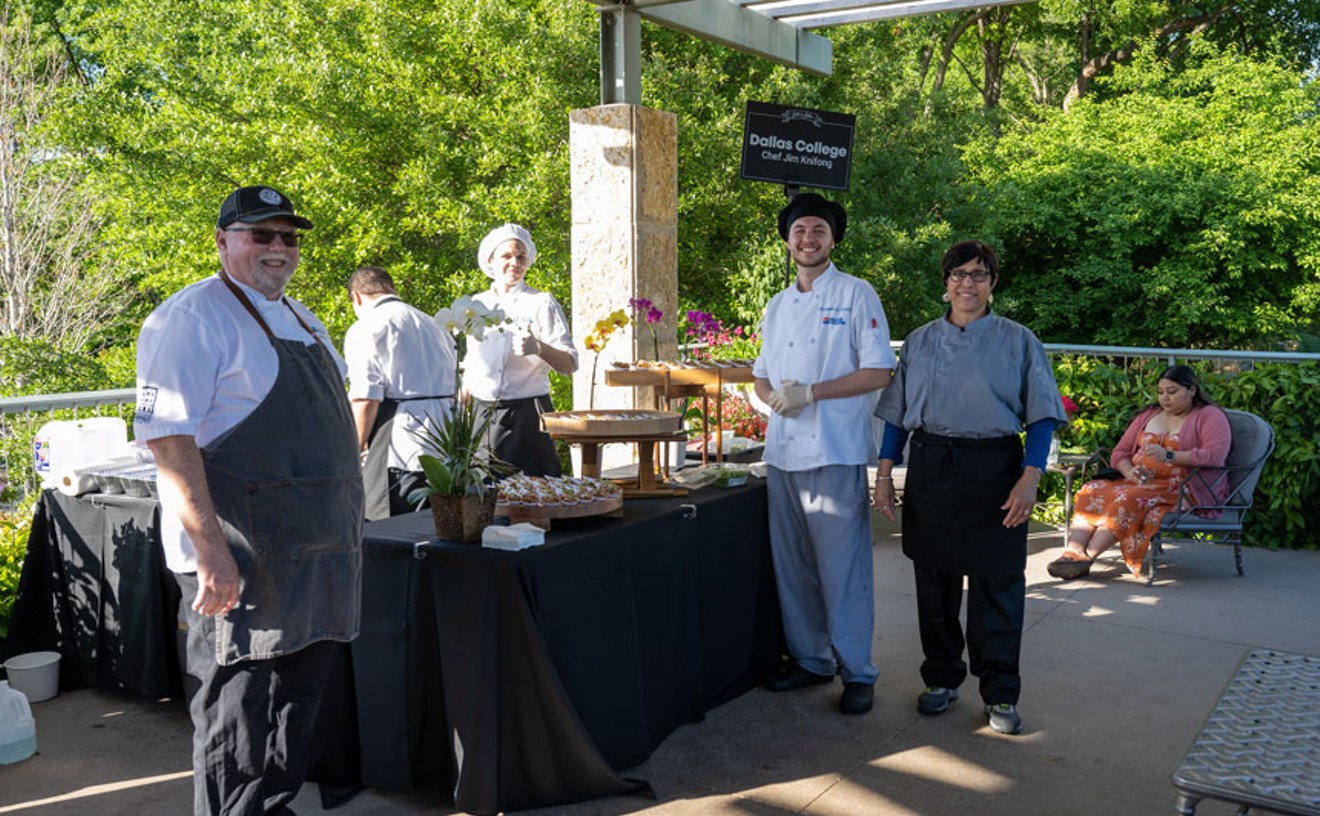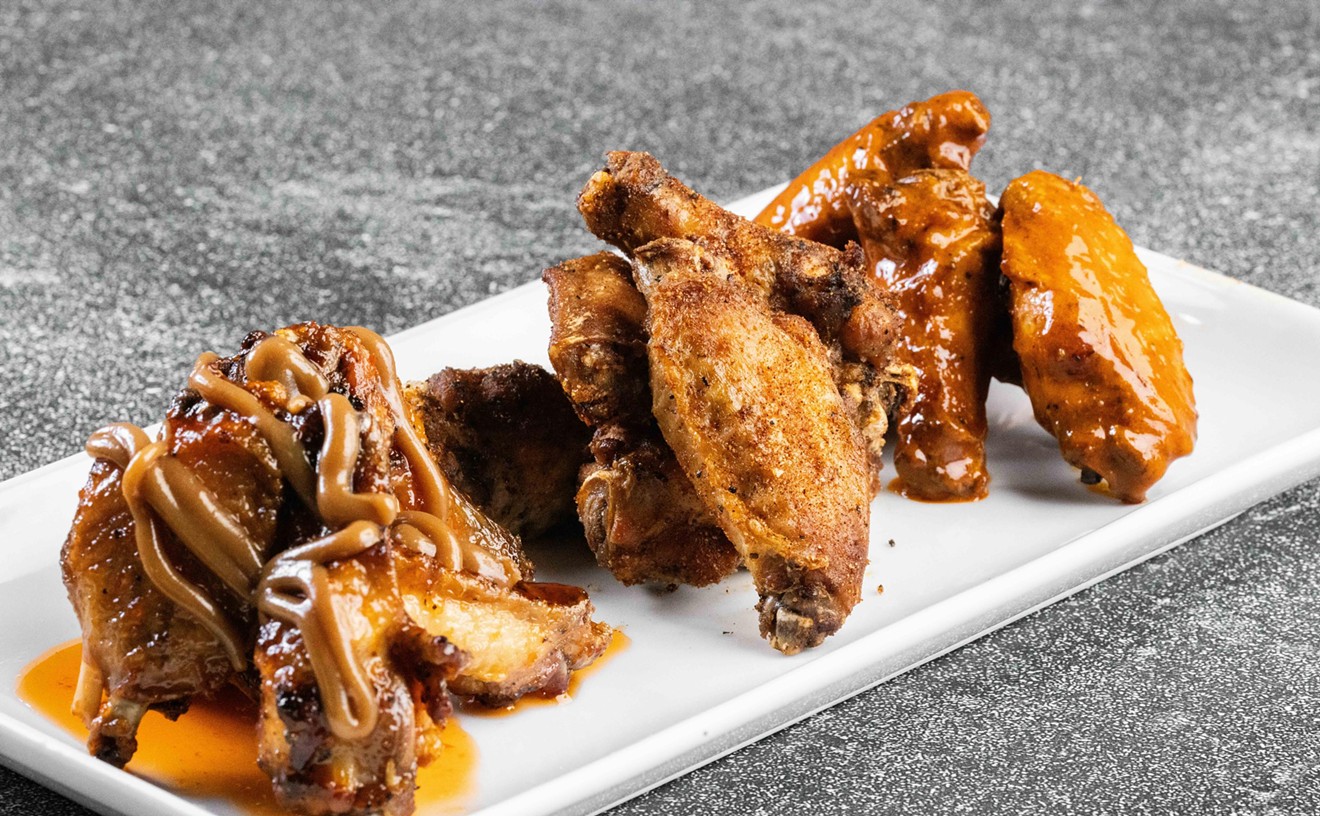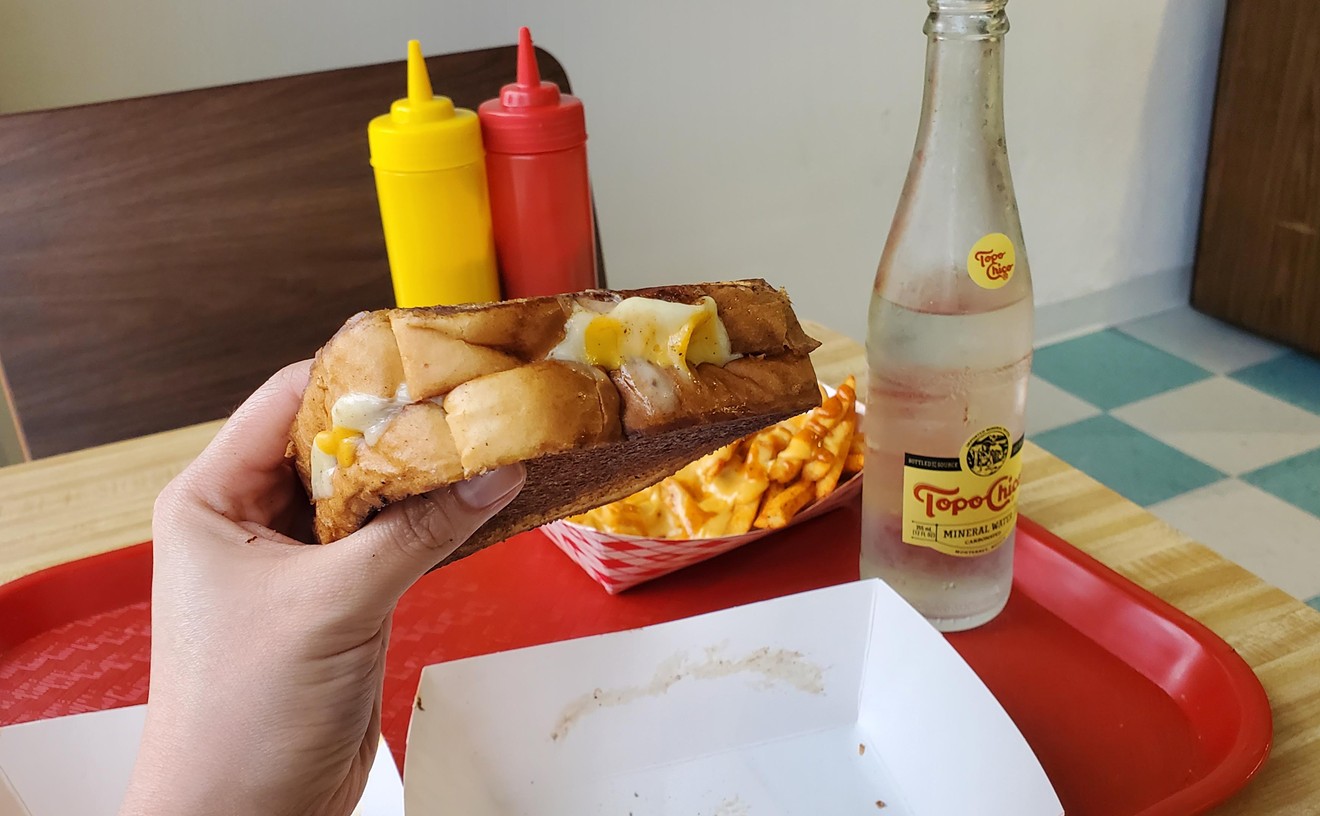The proposed overlay has been a contentious topic ever since the city started hosting town hall meetings on the issue late last year. The debate began after the city's Quality of Life & Environment Committee recommended action in response to complaints from residents who say their neighborhoods, particularly along McKinney Avenue in Uptown, have been negatively affected by crowds of intoxicated late-night bar and restaurant patrons. The Dallas service industry has showed up en masse to oppose to the proposal; hundreds swarmed town hall meetings late last year that often became lengthy, emotional debates.
With early voting already underway for the May 6 City Council election, the debate has become increasingly political. Monday night's meeting at the Katy Trail Ice House was organized by a group called Save the Patio, a coalition of business owners, service industry employees and Dallas residents who are fighting the proposed overlay. Matt Wood, an East Dallas resident running for the City Council District 14 seat currently held by Philip Kingston, was there, as was Linus Spiller, candidate for the District 6 council seat. The stated purpose of the meeting, according to Save the Patio's lead organizer Randall White, was to come up with a game plan in the continued fight against the proposal, but the conversation shifted when Kingston supporters raised doubts about Save the Patio's intentions.
Kingston, whose district includes both Uptown and Lower Greenville, supports the use of specific use permits as "a gentle stimulus back to 'neighborhood-serving businesses,'" he said in an interview Tuesday afternoon.
"What I'm trying to do is create enabling legislation that allows neighbors to decide whether they want late-hours specific use permits without having to go through planned development district process," he says. The City Council approved the creation of the Lower Greenville Planned Development District, which places tighter constraints on late-night businesses, in 2011.
Wood, the candidate running for Kingston's seat, is opposed to the proposal to make late-night overlays easier to enact in neighborhoods with entertainment districts. Wood "believes there are other solutions already on the books that can address residents' concerns and maintain vibrant corridors," the candidate said on Facebook, adding that he "opposes political, backdoor deals that could force Dallas' favorite late night venues to close at midnight."
Michelle Espinal, a downtown Dallas resident, came to Monday's meeting in a Philip Kingston T-shirt, holding a sign in support of the candidate. Despite fervent support for Kingston, Espinal does not support the proposed overlay.

Michelle Espinal, wearing a white Philip Kingston T-shirt, engaged in debate with Matt Wood's supporters at Monday night's Save the Patio event at Katy Trail Ice House.
Beth Rankin
White maintains that Save the Patio isn't endorsing any individual candidates. "The Save the Patio group began actually last year before there were even any candidates in this race," White says. "We came together because we heard there were rumblings about two ordinance amendments: one having to do with new parking requirements for outdoor spaces and one having to do with the late-hours overlay. That's what brought this coalition together. It was not inherently political to begin with; it was just an effort to stop these business-unfriendly and urban corridor-unfriendly ordinances."
Kingston has a different take on the debate.
"Part of what's going on here is that Save the Patio is one dude, and it's a dude that I fired a few years ago for gross incompetence," Kingston says. "So he's a little pissed and he's just lying to everybody."
White is the president of Elettore, a consulting group that does "community relations and public affairs for a variety of clients," White says, including politicians. The Greater Dallas Restaurant Association, which opposes the late-night overlay, is White's client.
Kingston's campaign is a former client, White says, but he declined to elaborate further. "I don't tend to talk about our clients," he says. He denies that Save the Patio, which he says "is about 700 people and has a leadership team of about 30," was created out of a personal vendetta against Kingston.
"It's not my style to kind of get personal," White says. "My job is to represent a large group of people and to help them."
At Monday night's meeting, White and others who spoke to the crowd encouraged interested parties to attend the Zoning Ordinance Advisory Committee's next meeting, at 9 a.m. Thursday, April 27 at City Hall. Andy Rittler, president of the Greater Dallas Restaurant Association, wants the city to conduct an economic impact study to determine what effect a late-night overlay would have in neighborhoods like Uptown, where bars are often busiest between midnight and 2 a.m.
"We have to scream from the rooftops that putting this into the hands of politicians, that's a slippery slope that none of us wants to go down," Rittler says. "This is very dangerous. It's written too broad."
Tensions are rising as the City Council election draws near.

Randall White, in yellow, speaks to a crowd of about 50 people at Katy Trail Ice House during a meeting about the proposed late-night overlay that could force some Dallas bars to close at midnight.
Beth Rankin
Kingston, if re-elected, is not likely to let this issue fall by the wayside.
"I've seen this pattern in a number of entertainment districts," he says. "What happens is the city fails to meet its commitment to maintain the public infrastructure, which causes the landlords to stop investing in the properties,
which means that the operators they get are of lesser quality and then there's a race to the bottom in terms of clientele."
Aside from complaints from the neighborhood about noise, fights, litter and public urination, Kingston cites "the unwavering signal that is the drink special," he says. "You start seeing an increase in drink specials ... this is what we saw in Deep Ellum in the late '90s early 2000s."
"The point of an overlay is that it's not citywide," Kingston says. "We're not doing this all over, it's not a curfew. It allows a neighborhood to consider just that one question, and it goes over the existing zoning so nothing else changes. I think it's just gonna be a much healthier process."
That process continues with Thursday's meeting. Previous discussions have been heated, and at Monday's meeting, White asked the crowd to keep a level head.
"We live in an angry world," White says. "The tone has been set elsewhere for an angry world. This process not only needs logic in our responses to people, but also possible solutions."

